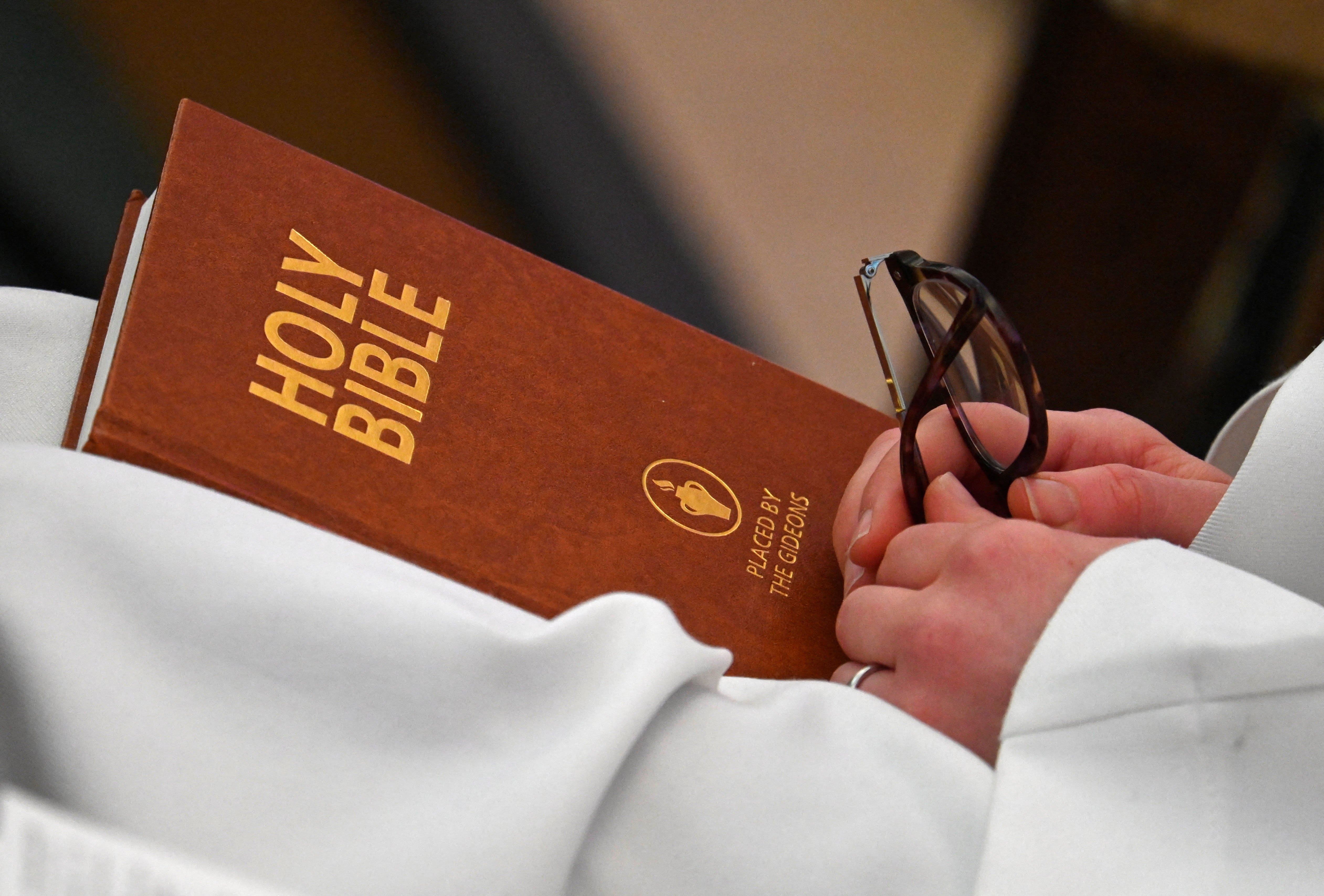Liturgical expert with pastoral sense to lead international group translating English liturgy
The organization that oversees the Catholic Church’s English-language translations for the Mass and other liturgies of the Roman Rite has a new leader as of Nov. 1.
The bishops of the International Commission on English in the Liturgy have appointed Father Andrew Menke as ICEL’s executive director for a five-year term.
The decision, approved at the ICEL bishops’ July 17-21 meeting in Washington, was announced July 21.
Father Menke is succeeding Msgr. Andrew Wadsworth, who has held the post since 2009. Msgr. Wadsworth remains a consultant to ICEL as well as director of the St. Gregory Institute for the Study of Liturgical Latin, a collaborative project between ICEL and the department of Greek and Latin at The Catholic University of America in Washington.
A priest of the Diocese of Lincoln, Nebraska, Father Menke was the former executive director of the Secretariat of Divine Worship at the U.S. Conference of Catholic Bishops, or USCCB, from 2017 until July 1. He holds both a licentiate and doctorate in sacred liturgy from the Pontifical Liturgical Institute at Sant’Anselmo in Rome. From 2010-2015, he was an official for the Vatican’s Congregation (now Dicastery) for Divine Worship and the Discipline of the Sacraments.
Father Dennis Gill, director of the Archdiocese of Philadelphia’s Office for Divine Worship, told OSV News in an email he was “very happy” about Father Menke’s appointment, pointing to Father Menke’s “knowledge, experience and pastoral sense.”
ICEL ensures that each of the Latin liturgical books, along with individual liturgical texts, are translated into English according to the Holy See’s directives. The commission was formed in Rome in 1963 by bishops from English-speaking countries attending the Second Vatican Council.
In its constitution on the sacred liturgy, “Sacrosanctum Concilium,” the council allowed for the celebration of Mass in the vernacular, while specifying that translations from Latin for liturgical use must be authorized by “competent territorial bodies of bishops” that have been legitimately established.
ICEL is comprised of member representatives of 11 bishops’ conferences hailing from Australia, Canada, England and Wales, India, Ireland, New Zealand, Pakistan, the Philippines, Scotland, Southern Africa and the U.S. One bishop is elected by each of the respective conferences to serve on ICEL.
Archbishop Leonard T. Blair of Hartford, Connecticut, serves as the USCCB’s ICEL representative.
In 2003, the Congregation for Divine Worship and the Discipline of the Sacraments formally established ICEL as a mixed commission in accordance with “Liturgiam Authenticam,” the 2001 Vatican instruction on the use of the vernacular in the liturgy.
While it does not publish liturgical texts, ICEL translations are made available to member bishops’ conferences who authorize publication.
The issue of translations and their authorized use received renewed attention during the COVID-19 pandemic, when parishes shifted to livestreamed liturgies and the use of digital worship aids.
Except for the Scriptural readings, the texts of the Mass in English are copyrighted by ICEL, which also charges royalty fees to compensate scholars and develop liturgical materials.
While a parish’s purchase of lectionaries and missalettes typically covers permissions requirements, the shift to online and recorded liturgies raised previously unconsidered issues regarding permissions, copyright and reprints of worship aids.
In a May 2020 interview with CatholicPhilly.com, Msgr. Wadsworth said ICEL would need to consider such issues in the coming years, as members “never thought of situations where people would need access (to worship aids) outside of church.”
This article was written by Gina Christian, a national reporter for OSV News.



